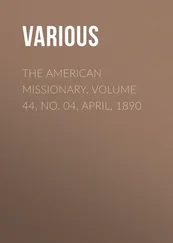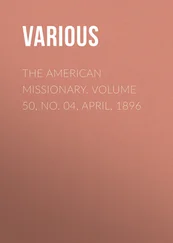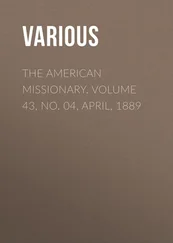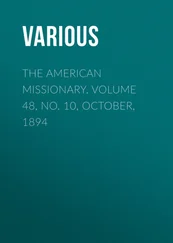Elizabeth Ellet - The Women of The American Revolution, Vol. 1
Здесь есть возможность читать онлайн «Elizabeth Ellet - The Women of The American Revolution, Vol. 1» — ознакомительный отрывок электронной книги совершенно бесплатно, а после прочтения отрывка купить полную версию. В некоторых случаях можно слушать аудио, скачать через торрент в формате fb2 и присутствует краткое содержание. Жанр: foreign_antique, foreign_prose, на английском языке. Описание произведения, (предисловие) а так же отзывы посетителей доступны на портале библиотеки ЛибКат.
- Название:The Women of The American Revolution, Vol. 1
- Автор:
- Жанр:
- Год:неизвестен
- ISBN:нет данных
- Рейтинг книги:5 / 5. Голосов: 1
-
Избранное:Добавить в избранное
- Отзывы:
-
Ваша оценка:
- 100
- 1
- 2
- 3
- 4
- 5
The Women of The American Revolution, Vol. 1: краткое содержание, описание и аннотация
Предлагаем к чтению аннотацию, описание, краткое содержание или предисловие (зависит от того, что написал сам автор книги «The Women of The American Revolution, Vol. 1»). Если вы не нашли необходимую информацию о книге — напишите в комментариях, мы постараемся отыскать её.
The Women of The American Revolution, Vol. 1 — читать онлайн ознакомительный отрывок
Ниже представлен текст книги, разбитый по страницам. Система сохранения места последней прочитанной страницы, позволяет с удобством читать онлайн бесплатно книгу «The Women of The American Revolution, Vol. 1», без необходимости каждый раз заново искать на чём Вы остановились. Поставьте закладку, и сможете в любой момент перейти на страницу, на которой закончили чтение.
Интервал:
Закладка:
Hers it was, renouncing all other allegiance —
"In war or peace, in sickness, or in health,
In trouble and in danger, and distress, '
Through time and through eternity, to love."
"I have received," she writes, in June, 1777, to her husband, "both my friend's letters. They have contributed to raise my spirits, which, though low enough, are better than when you parted with me. The reflection how much I pain you by my want of resolution and the double distress I occasion you, when I ought to make your duty as light as possible, would tend to depress my spirits, did I not consider that the best and only amends is, to endeavor to resume my cheerfulness, and regain my usual spirits. I wish you to know, my dearest friend, that I have done this as much as possible, and beg you to free your mind from every care on this head."
But to return to the narrative – interrupted, naturally, by thoughts like these. The reverses which the British army met at Trenton and Princeton, with the details of which every one is presumed to be familiar, saved that part of New Jersey where Mrs. Reed and her family resided, from further danger; and on the retreat of the enemy, and the consequent relief of Philadelphia from further alarm, she returned to her home. She returned there with pride as well as contentment; for her husband, inexperienced soldier as he was, had earned military fame of no slight eminence. He had been in nearly every action, and always distinguished. Washington had, on all occasions, and at last in an especial manner, peculiarly honored him. The patriots of Philadelphia hailed him back among them; and the wife's smile of welcome was not less bright because she looked with pride upon her husband.
Brief, however, was the new period of repose. The English generals, deeply mortified at their discomfiture in New Jersey, resolved on a new and more elaborate attempt on Philadelphia; and in July, 1777, set sail with the most complete equipment they had yet been able to prepare, for the capes of the Chesapeake. On the landing of the British army at the head of Elk, and during the military movements that followed, Mrs. Reed was at Norristown, and there remained, her husband having again joined the army, till after the battle of Brandywine, when she and her children were removed first to Burlington, and thence to Flemington. Mr. Reed's hurried letters show the imminent danger that even women and children ran in those days of confusion. "It is quite uncertain," he writes on 14th September, 1777, "which way the progress of the British army may point. Upon their usual plan of movement, they will cross, or endeavor to cross, the Schuylkill, somewhere near my house; in which case I shall be very dangerously situated. If you could possibly spare Cato, with your light wagon, to be with me to assist in getting off if there should be necessity, I shall be very glad. I have but few things beside the women and children; but yet, upon a push, one wagon and two horses would be too little." Mrs. Reed's letters show her agonized condition, alarmed as she was, at the continual and peculiar risk her husband was running. A little later (in February, 1778), Mrs. Reed says, in writing to a dear female friend: "This season which used to be so long and tedious, has, to me, been swift, and no sooner come than nearly gone. Not from the pleasures it has brought, but the fears of what is to come; and, indeed, on many accounts, winter has become the only season of peace and safety. Returning spring will, I fear, bring a return of bloodshed and destruction to our country. That it must do so to this part of it, seems unavoidable; and how much of the distress we may feel before we are able to move from it, I am unable to say. I sometimes fear a great deal. It has already become too dangerous for Mr. Reed to be at home more than one day at a time, and that seldom and uncertain. Indeed, I am easiest when he is from home, as his being here brings danger with it. There are so many disaffected to the cause of their country, that they lie in wait for those who are active; but I trust that the same kind presiding Power which has preserved him from the hands of his enemies, will still do it."
Nor were her fears unreasonable. The neighborhood of Philadelphia, after it fell into the hands of the enemy, was infested by gangs of armed loyalists, who threatened the safety of every patriot whom they encountered. Tempted by the hard money which the British promised them, they dared any danger, and were willing to commit any enormity. It was these very ruffians, and their wily abettors, for whom afterwards so much false sympathy was invoked. Mr. Reed and his family, though much exposed, happily escaped these dangers.
During the military operations of the Autumn of 1777, Mr. Reed was again attached as a volunteer to Washington's staff, and during the winter that followed – the worst that America's soldiers saw – he was at, or in the immediate neighborhood, of Valley Forge, as one of a committee of Congress, of which body he had some time before been chosen a member. Mrs. Reed with her mother and her little family took refuge at Flemington, in the upper part of New Jersey. She remained there till after the evacuation of Philadelphia and the battle of Monmouth, in June, 1778.
While thus separated from her husband, and residing at Flemington, new domestic misfortune fell on her, in the death of one of her children by smallpox. How like an affectionate heart-stricken mother is the following passage, from a letter written at that time. Though it has no peculiar beauty of style, there is a touching genuineness which every reader – at least those who know a mother's heart under such affliction – will appreciate.
"Surely," says she, "my affliction has had its aggravation, and I cannot help reflecting on my neglect of my dear lost child. For thoughtful and attentive to my own situation, I did not take the necessary precaution to prevent that fatal disorder when it was in my power. Surely I ought to take blame to myself. I would not do it to aggravate my sorrow, but to learn a lesson of humility, and more caution and prudence in future. Would to God I could learn every lesson intended by the stroke. I think sometimes of my loss with composure, acknowledging the wisdom, right, and even the kindness of the dispensation. Again I feel it overcome me, and strike the very bottom of my heart, and tell me the work is not yet finished ."
Nor was it finished, though in a sense different from what she apprehended. Her children were spared, but her own short span of life was nearly run. Trial and perplexity and separation from home and husband were doing their work. Mrs. Reed returned to Philadelphia, the seat of actual warfare being forever removed, to apparent comfort and high social position. In the fall of 1778, Mr. Reed was elected President, or in the language of our day, Governor of Pennsylvania. His administration, its difficulties and ultimate success belong to the history of the country, and have been elsewhere illustrated. It was from first to last a period of intense political excitement, and Mr. Reed was the high target at which the sharp and venomous shafts of party virulence were chiefly shot.
The suppressed poison of loyalism mingled with the ferocity of ordinary political animosity, and the scene was in every respect discreditable to all concerned. Slander of every sort was freely propagated. Personal violence was threatened. Gentlemen went armed in the streets of Philadelphia. Folly on one hand and fanaticism on the other, put in jeopardy the lives of many distinguished citizens, in October, 1779, and Mr. Reed by his energy and discretion saved them. There is extant a letter from his wife, written to a friend, on the day of what is well known in Philadelphia, as the Fort Wilson riot, dated at Germantown, which shows her fears for her husband's safety were not less reasonable, when he was exposed to the fury of an excited populace, than to the legitimate hostility of an enemy on the field of battle:
Читать дальшеИнтервал:
Закладка:
Похожие книги на «The Women of The American Revolution, Vol. 1»
Представляем Вашему вниманию похожие книги на «The Women of The American Revolution, Vol. 1» списком для выбора. Мы отобрали схожую по названию и смыслу литературу в надежде предоставить читателям больше вариантов отыскать новые, интересные, ещё непрочитанные произведения.
Обсуждение, отзывы о книге «The Women of The American Revolution, Vol. 1» и просто собственные мнения читателей. Оставьте ваши комментарии, напишите, что Вы думаете о произведении, его смысле или главных героях. Укажите что конкретно понравилось, а что нет, и почему Вы так считаете.












